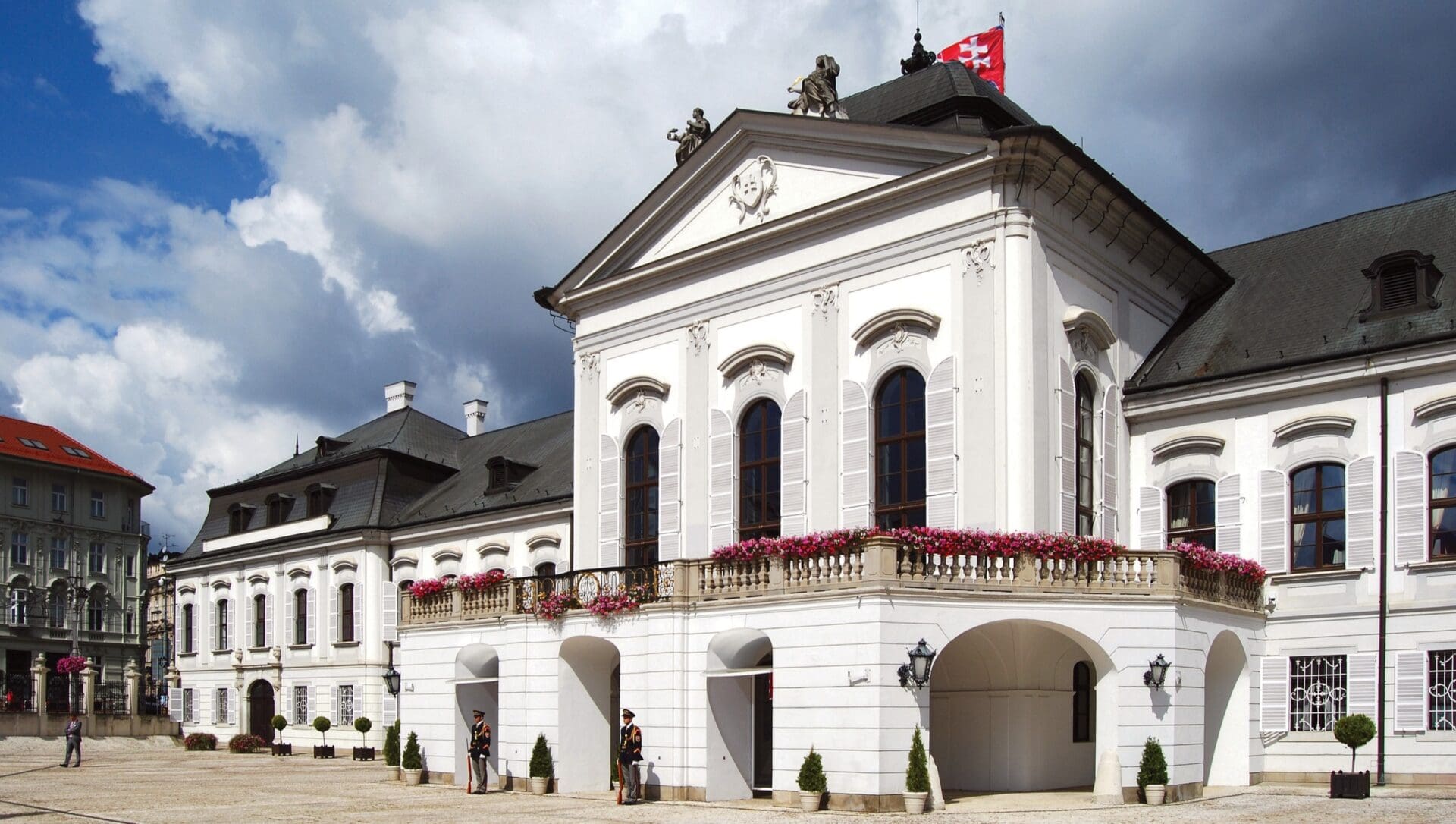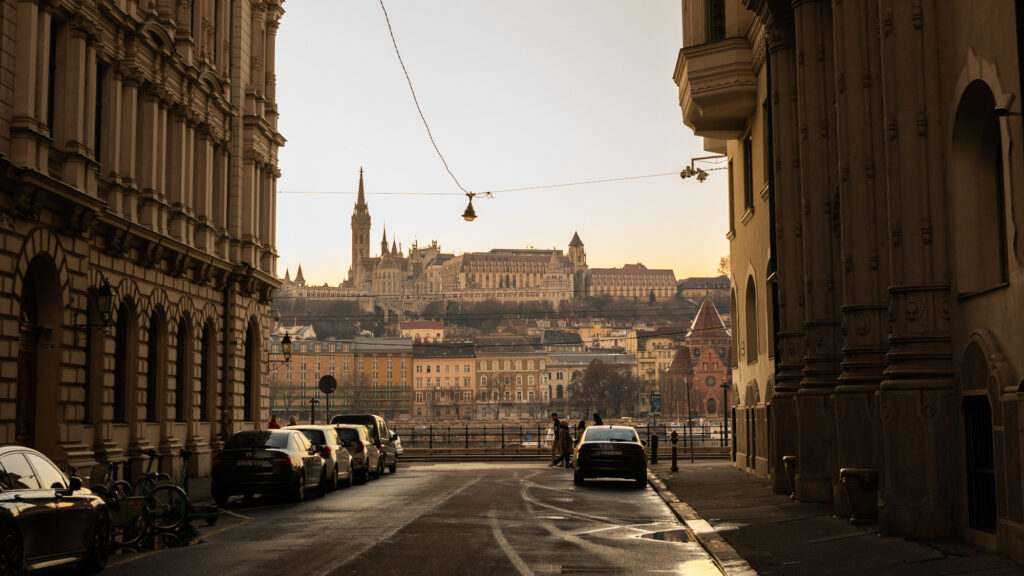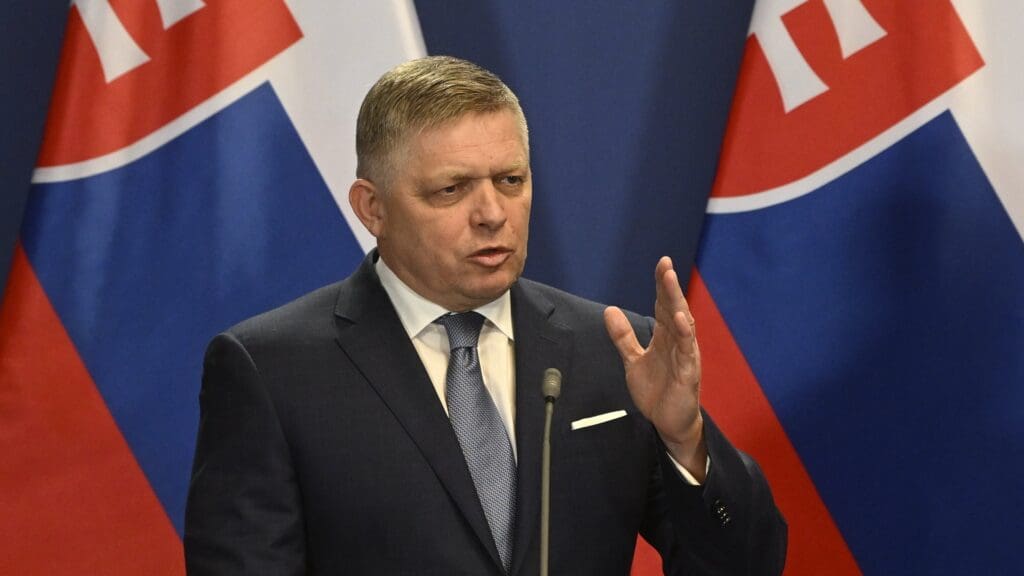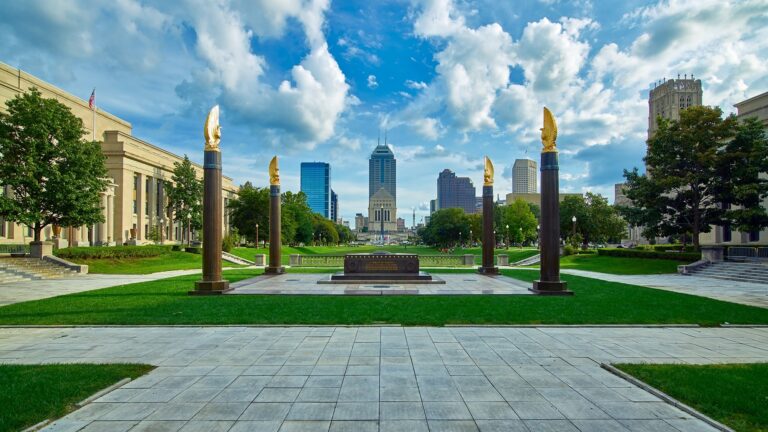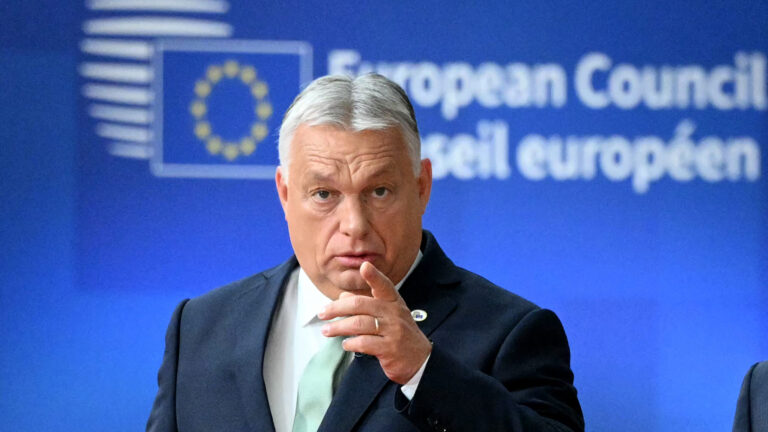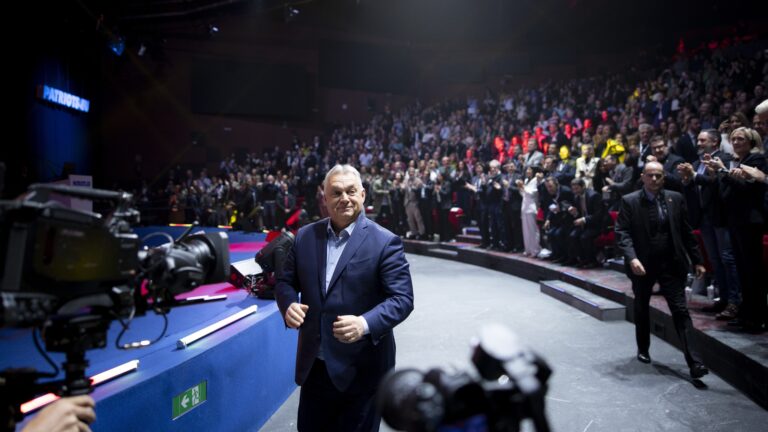This article was published in Vol. 4 No. 2 of our print edition.
The Grassalkovich Palace is one of the most notable buildings in the historic old town of the Slovakian capital, Bratislava. This small castle is an excellent example of Central European Rococo architecture, with its impressive, ageless design and enthralling French garden. A few hundred years ago, the property was built and owned by a Hungarian nobleman, but it has served as the Office of the President of the Slovak Republic for the past thirty years. Since 2014, this palace has also been considered one of Slovakia’s main headquarters for progressive forces, as the current and previous presidents of the Republic, Andrej Kiska and Zuzana Čaputová, have been closely associated with liberal parties, thinkers, and elites.
As per the Constitution of the Slovak Republic, the president is the head of the state, representing the country at the national and international levels and ensuring the legal functioning of the constitutional bodies. The president conducts national and international negotiations, and signs and ratifies the country’s laws and treaties. Presidents exercise their functions according to their conscience and conviction and are not bound by any instructions or orders. While the president holds the most prestigious public role and is the commander-in-chief of the armed forces, the real political power is concentrated in the hands of the prime minister and Parliament, i.e. the National Council of the Slovak Republic.1 In the period immediately after the country’s foundation in 1993, the task of electing the president belonged to lawmakers, but since 1999, direct presidential elections have been held. There are two rounds, and though theoretically a winner could be elected in the first round, this would require a candidate to obtain more than half the votes of all registered voters, which in practical terms is virtually impossible.
Despite being one of the most popular politicians in Slovakia,2 President Zuzana Čaputová, to the surprise of many, announced in the summer of 2023 that she would not run3 for a second term in office. She called her decision personal: ‘After honest reflection, I now know I would not have enough strength for another mandate.’4 Čaputová ensured that her decision not to run in the 2024 presidential election would not mean giving up her ideals or the values to which she had subordinated her entire professional and personal life. ‘Before and during my mandate as head of state, I tried to help Slovakia’s democracy and justice, and I will continue to do so after,’5 she said. Čaputová also asked people not to see her decision as proof that success cannot be achieved through honesty.
‘Despite predictions of a close race, the national side emerged victorious by a large margin over the progressives’
The president’s decision was met with general consternation. In reaction, the then chairman of the party Hlas-SD (Voice–Social Democracy), former Prime Minister Peter Pellegrini, emphasized that Čaputová was too young to be a ‘political retiree’. Furthermore, he argued that becoming president and enjoying such great trust is a mission: ‘One does not gamble with the people’s trust, and if one is a statesman, even for serious reasons, one should not leave such a position.’6
Not long after Čaputová’s decision, the progressives found their new presidential aspirant in the person of former Minister for Foreign and European Affairs Ivan Korčok. Although his name had emerged earlier as a potential candidate, he had also clarified that he would not run for office against Čaputová. However, not long after the incumbent head of state stepped back from the limelight, Korčok almost immediately moved into it.
Ivan Korčok has an impressive career and life journey behind him. He was born on 4 April 1964 in Banská Bystrica. He studied at the Business Faculty of the University of Economics in Bratislava (1983–1987). After the Velvet Revolution, he pursued postgraduate studies in the field of International Relations and Affairs at the Institute of International Relations of the Comenius University in Bratislava. He began his professional career at the Ministry of Foreign Affairs in 1993. Under Prime Minister Vladimír Mečiar, he served as the ambassador’s third secretary at the Embassy of the Slovak Republic in Bonn, Germany (1993–1996). When Mikuláš Dzurinda became prime minister in 1998, Korčok was appointed as the ambassador’s first secretary at the Slovak Embassy in Bern, Switzerland (1998–1999). He then moved to Brussels as the deputy head of mission of the Slovak Republic to NATO (1999–2001). Between 2002 and 2005, he worked as a state secretary. From 2005 to 2009, Korčok returned to Germany and served as the ambassador extraordinary and plenipotentiary of the Slovak Republic to Berlin. For most of this period, Robert Fico was the country’s prime minister (2006–2010). From 2009 until 2015, Korčok was the permanent representative of the Slovak Republic to the European Union. He remained in office under the government of Iveta Radičová (2010–2012). When the Slovak Republic held the presidency of the Council of the European Union from 1 July 2016 to 1 January 2017, Korčok represented Slovakia as minister délégué before the European Council and Parliament. During the premiership of Peter Pellegrini, Ivan Korčok assumed his duties as ambassador extraordinary and plenipotentiary of the Slovak Republic to the United States of America between 2018 and 2020. From 2020 to 2022, under prime ministers Igor Matovič and Eduard Heger, Korčok held the position of Minister of Foreign Affairs and European Affairs of the Slovak Republic.7 It is clear from the biography that Korčok has a successful diplomatic career behind him. However, it also appears that, being a diplomat, he served all former Slovak prime ministers, regardless of their orientation, ideology, or views.
Peter Pellegrini’s life path shows some similarities and some significant differences with that of Ivan Korčok. Pellegrini was born on 6 October 1975 in Banská Bystrica. He graduated from finance, banking, and investment at the Matej Bel University in Banská Bystrica and the Faculty of Economics at the Technical University in Košice. Between 2002 and 2006, Pellegrini worked as an assistant to MP Ľubomír Vážny. In the 2006 parliamentary elections, he was elected for the first time as a member of the National Council of the Slovak Republic for the party Smer-SD (Direction–Social Democracy). Since then, he has won a seat in every parliamentary election. He became the chairman of the Committee for Transport, Post, Communications and the Informatization of Society in the Committee for Economic Policy of the Slovak Republic.8 Between 2010 and 2012, he served in the Committee for Finance and Budget and was also a member of the Committee for Reviewing the Decisions of the National Security Office (NBÚ).9 In 2014, he became the Minister of Education, Science, Research and Sports of the Slovak Republic. In the same year, he also became the Speaker of the House for the first time. After the 2016 parliamentary elections, Pellegrini served as the Deputy Prime Minister for Investments and Informatization. When Robert Fico resigned as prime minister in 2018, President Andrej Kiska entrusted him with forming a new government. As a result, from 22 March 2018 until 20 March 2020, Pellegrini served as prime minister of the Slovak Republic. After the 2020 elections, he became the vice-chairman of the Parliament. In June 2020, he left the Smer-SD and founded his own party, Hlas-SD (Voice–Social Democracy). After the elections in 2023, in which Hlas finished in third place, it entered a coalition with the parties Smer and SNS. In October 2023, he was elected Speaker of the House.10 He waited until the last moment to decide on his presidential candidacy. Even before his final verdict on running for office, he was considered a front-runner by both pollsters and the media. However, his ride to the Grassalkovich Palace was less smooth than anticipated.
The first round of the presidential elections in Slovakia was held on 23 March 2024. Participation barely exceeded fifty per cent (50.91 per cent), but this still exceeded turnout in previous elections. In the first round of the 2019 elections, for instance, turnout was 48.74 per cent, while in the second round, it decreased to only 41.79 per cent.11 At the same time, it can be seen that the 2023 parliamentary election proved more engaging: turnout on that occasion was much higher, reaching 68.51 per cent.12
As expected, none of the eleven candidates on the ballot obtained the votes required to be elected in the first round. In line with the forecasts,13 former Minister of Foreign Affairs Ivan Korčok (42.51 per cent) and former Prime Minister and current House Speaker Peter Pellegrini (37.02 per cent) qualified for the second round.14 While the five-percentage-point difference between the two candidates slightly exceeded expectations, upon closer inspection, it was discovered that Korčok was the only natural liberal–progressive candidate on the list. At the same time, on the national side, alongside Pellegrini, Štefan Harabin (11.73 per cent), Ján Kubiš (2.03 per cent), and Marian Kotleba (0.56 per cent) also ran for office. Furthermore, the names of the leader of the Slovak National Party, Andrej Danko and the right-wing candidate Róbert Švec were also on the ballot, because they had only withdrawn their candidature during the last television debate before the campaign silence. It was clear from the first moment that the nearly 265,000 votes cast for the third-placed Harabin could be decisive in the second round, as they constituted more than double the difference between Korčok and Pellegrini (123,675). The questions remained: would Harabin pick a candidate and stand next to him, and would it be possible to persuade the absentee voters to participate in the second round?
In 2024, the Hungarian community nominated a presidential candidate in Slovakia for the third time in history. Ten years earlier, in 2014, the aspirant of the ethnic Hungarians, Gyula Bárdos, achieved a result of 5.10 per cent, with 97,035 votes cast for him.15 Five years later, two Hungarian candidates ran for the presidency. However, shortly before the first round, the nominee of the Party of the Hungarian Community (Magyar Közösség Pártja), József Menyhárt, withdrew from the contest. However, Béla Bugár, the leader of the joint Hungarian–Slovakian party Most-Híd (Bridge), did take part, achieving 3.1 per cent, or 66,667 votes.16 The negative trend in Hungarian presidential aspirations continued in 2024. The candidate of the party Magyar Szövetség (Hungarian Alliance), Krisztián Forró, fell significantly short of expectations, as he only received 2.9 per cent, or 65,588 votes. Based on the 2021 census, the number of Slovak citizens with Hungarian ethnicity is 422,065, or 7.75 per cent of the Slovakian population.17 Looking at these numbers, an alarming trend can be seen, especially considering that a century earlier, in 1921, the number of ethnic Hungarians living in the area of modern Slovakia was 650,597, equivalent to 21.68 per cent of the population.18
The data indicate a sharp decrease, in both the short and long term. Ten years ago, Gyula Bárdos achieved a result exceeding five per cent, which is the threshold for entry in parliamentary elections. In 2024, it was not possible to achieve even three per cent. This outcome accurately reflects the division that has characterized the Hungarian community in Slovakia during the last two decades. While the conservative element of the ethnic Hungarians predominantly stood behind Forró, a significant proportion of the liberal side either stayed away from the polls or voted for the liberal–progressive Slovak candidate in the first round. From a Hungarian perspective, it is also ominous that participation in the Hungarian-majority southern areas was much lower than elsewhere in the country. If this trend is not reversed soon, it could lead to dire political consequences for the whole ethnic community.
The second round of the 2024 Slovak presidential elections occurred two weeks later, on 6 April 2024. The stakes were enormously high, and nothing was certain. Even on voting day, neither candidate could be sure of success. The central riddle remained whether the majority of Slovak citizens wanted a president with liberal or national sentiments and thinking. The progressives argued that this vote was also a referendum on the Fico government, which had been in office since October 2023. Now, however, they are not making such claims. The two-week period between the election Saturdays was also interesting, as the parties took every opportunity to appeal to citizens who had abstained from voting in the first round, and to the supporters of candidates who had not managed to qualify for the second one.
It was also interesting to follow how the bookmakers’ views on the potential winner changed over time. Before the first round, they gave Pellegrini odds of 1/1.35 of ultimately emerging victorious,19 while Korčok’s odds were given as 1/3.35. Shortly before the second round election day, however, this ratio was reversed, with the progressive candidate being considered a likely winner with odds of around 1/1.7 against the candidate of the national side, whose odds of victory were given as 1/2.10. In this case, however, the bookies were wrong.20
But what did Pellegrini and Korčok promise before the elections? In the history of independent Slovakia, Korčok was the first right-wing presidential candidate rejected en mass by the Hungarian community. However, this did not happen without reason. As can be seen from his biography, Korčok has been in the diplomatic service without interruption for the past thirty years, serving all systems, policies, and interests in power. In his career, only about two years can be discerned in which he played a creative, decision-making role, rather than an administrative one. However, Hungarians do not like remembering those years either. When Korčok led the Ministry of Foreign Affairs, his essential starting point towards the Hungarian community in Slovakia was articulated by his State Secretary for Foreign Affairs Martin Klus, who viewed them as a security risk. According to Klus, if Hungarians in Slovakia were to adopt dual Hungarian–Slovakian citizenship en masse, a situation similar to that in Eastern Ukraine or South Ossetia could arise.21 Korčok never corrected or distanced himself from his subordinate’s words. As a minister, he actively participated in the discriminatory regulation of dual citizenship. He also testified to his lack of understanding of the local Hungarians when the Speaker of the Hungarian Parliament, László Kövér, delivered a speech about the persecution of Hungarians in Czechoslovakia after the Second World War.22
‘The goal of both the three-party coalition and the new president is to pursue a sovereigntist policy within the Euro-Atlantic region’
It was also unacceptable for Hungarian voters that Korčok refused to call the Beneš Decrees of 1945—which collectively disenfranchised Hungarians—a mistake, or even to admit that innocent people were displaced en masse as a result. Not to mention the fact that under the government of which Korčok was a member, land holdings were confiscated from the descendants of German and Hungarian owners, which had previously been ‘forgotten’ according to official justification.23 All this happened in the European Union, the primary foundation of which is the rule of law and the equality of every person. According to the reporting of Slovakia’s oldest daily Hungarian newspaper, Új Szó,24 months before the elections, in front of a professional audience, Korčok outlined his foreign policy plans. They would have been based on three pillars: neighbourhood, alliance, and partnerships. While he believed that the region’s stability should rest on good neighbourly relations with the Czech Republic and Poland, he also saw two challenges for Slovakia: ‘One is the special relationship with Hungary, and the other is the war raging in neighbouring Ukraine.’25 According to him, history still plays a vital role in Slovak–Hungarian relations, which the two sides interpret differently.
Pellegrini has been one of the most popular politicians in Slovakia for years.26 He ran for president from the seat of Speaker of the House. Unlike Korčok, he has been a decision-maker for most of his career, reaching the prime ministership in 2018. After the elections in 2023, his party, Hlas-SD, came third,27 thus forming a parliamentary grouping without which neither the national nor the progressive side would have been able to form a government. While the leader of the nationals offered Pellegrini the Speaker’s seat, the progressives raised the stakes, proposing that he become prime minister. It was for him to decide whether Slovakia would continue on a liberal path or take a national turn. He favoured the latter, resisting the lure of the prime minister’s chair. Life compensated him with the presidency.
But what convinced a significant number of Hungarians to vote for Pellegrini? The answer can be found in the relationship between the Hungarian and Slovak national forces, or, in other words, the Slovak left and the Hungarian right. In the 1990s, the party HZDS, and then in the 2000s, the Smer–HZDS–SNS government, made every effort to make the lives of ethnic minorities worse, pushing them forcefully into the arms of the liberals. It became natural among Hungarians to vote against the candidates of the mentioned parties. This is why the last three progressive presidential candidates—Radičová, Kiska, and Čaputová—won the Hungarian votes virtually without promising them anything.
Pellegrini likewise did not promise much tangible to the Hungarians in this election. At the same time, he did make a commitment at the international level, namely the continuation of the sovereigntist policy currently seen only in Hungary and Slovakia. Ethnic Hungarians living in Slovakia have experienced that their lives will be unimpaired if Bratislava and Budapest are strong allies. It is evident that the Hungarian and Slovakian governments need each other’s support in Brussels if they wish to continue their policies, an integral part of which is the vocal rejection of Woke ideology, gender politics, uncontrolled migration, and the drift towards involvement in the Russia–Ukraine War. While, according to Korčok, a member state veto in the European Council is no longer necessary, Pellegrini views this question differently: it is the only tool for asserting the interests of small countries. While, according to Korčok, the Visegrád Group (V4) should not make its voice heard in the matter of migration or gender issues, but in matters of democracy and the rule of law, and cooperation is primarily possible in the fields of culture and the arts, Pellegrini, as a former PM, knows very well that the key to asserting the region’s interests is the efficient operation of the V4. When Hungarians in Slovakia voted for Pellegrini, they also voted for Viktor Orbán’s migration policy and good Hungarian–Slovak cooperation. It is no coincidence that the president of the Hungarian Alliance Party, Krisztián Forró, was personally present at the Hlas-SD election night event, and stood next to the winner during his celebratory speech.
In the first round of the presidential election, Korčok won with 42.71 per cent of the votes (958,000), while Pellegrini came second with 37.02 per cent (834,000).28 It was clear that the two parties would fight an open battle in the second round, which could be influenced by the support of the candidates who had not qualified there. The main questions were whether Štefan Harabin, who finished third with 264,000 votes, would support Pellegrini and whether the candidates could lure those who had not voted in the first round to the polls. Harabin urged his supporters to vote, but did not clearly state whom he was supporting.29 He did, however, strongly criticize Korčok for his stand on aiming to give up the right to the veto in the European Council, which Harabin considered an act of treason. At the same time, he did not treat Pellegrini with kid gloves either, claiming that his position as Speaker of the House was incompatible with his candidacy for the presidency. Moreover, Harabin called on Pellegrini to take up patriotic themes to win over his voters.30
Forró, the candidate of the Hungarian community, who finished fourth in the first round with 2.9 per cent, clearly endorsed Pellegrini.31 In a joint press conference, Forró and Pellegrini discussed issues affecting ethnic Hungarians living in Slovakia, such as dual citizenship, land confiscations based on the Beneš Decrees, and future developments in southern Slovakia, where ethnic Hungarians are concentrated. Based on the second-round results, Pellegrini won in the Hungarian-inhabited districts of Trnava, Nitra, Banská Bystrica, and Košice counties, indicating that most ethnic right-wing Hungarians accepted Forró’s recommendation.32
Both sides awaited election night with great hopes for victory. The pollsters’ unanimous opinion was that very successful campaigns had been carried out, and there would only be a minimal gap between the candidates at the end of the day. There was also a consensus that Pellegrini would lead at the start of the vote counting, and that his advantage would gradually decrease as results from big cities began to trickle in. However, the reality was somewhat different. Although Pellegrini was indeed in the lead from the first moment, his advantage, contrary to the pollsters’ predictions, did not decrease at a dramatic pace. Korčok would have needed a miracle to win after around half the votes had been counted.
In reality, no miracle happened that night. Pellegrini was elected as the new president of the Slovak Republic. Despite predictions of a close race, the national side emerged victorious by a large margin over the progressives. Pellegrini, a former prime minister and Speaker of the House, secured 53.12 per cent of the vote with 1,409 million votes cast. His opponent, former Minister of Foreign Affairs Korčok, who represented the progressive side, obtained 1,243 million votes cast. This was the second time in the history of Slovak presidential elections that both candidates who qualified for the second round received over one million votes each. The only previous example was when Rudolf Schuster defeated Vladimír Mečiar in 1999.33 The voter turnout in 2024 was also high, at 61.14 per cent.34 The inauguration of the new president is scheduled for 15 June 2024.
During the last presidential term in the Slovak Republic, from 2019 until 2024, five prime ministers held office: Pellegrini, Matovič, Heger, Ódor, and Fico. Political stability has not recently been a characteristic of Slovak domestic politics. Even Matovič’s administration, in which the four governing parties had a constitutional majority, collapsed within a year. With the recent election of Pellegrini as the president of the Slovak Republic, there are renewed hopes of political stability, as the head of state, the prime minister, and the future Speaker of the House all come from the same political alliance, which makes up the current Slovak government. As has been revealed many times, the goal of both the three-party coalition and the new president is to pursue a sovereigntist policy within the Euro-Atlantic region. Hungary has been doing the same thing for over a decade. For this reason, it is likely that in the near future, the two nations will be able to support each other in exerting their influence in the EU and NATO. Hopefully, the beneficiaries of such international cooperation will also include the ethnic Hungarians living in Slovakia.
NOTES
1 ‘Constitution of the Slovak Republic’, Collection of Laws of the Slovak Republic, www.slov-lex.sk/pravne-predpisy/SK/ZZ/1992/460/, accessed 7 April 2024.
2 ‘Credibility of Zuzana Čaputová from Focus Agency’, Sme, https://volby.sme.sk/pref/2/doveryhodnost/s/6038/zuzana-caputova/focus/, accessed 7 April 2024.
3 ‘Zuzana Čaputová už nebude opäť kandidovať za prezidentku’ (Zuzana Čaputová Will not Run for President Again), Aktuality (16 June 2023), www.aktuality.sk/clanok/woLMjo0/zuzana-caputova-uz-nebude-opat-kandidovat-za-prezidentku/, accessed 7 April 2024.
4 ‘Čaputová nebude opäť kandidovať za prezidentku’ (Čaputová Will not Run for President Again), Pravda (20 June 2023), https://spravy.pravda.sk/prezidentske-volby-2024/clanok/671905-online-bude-alebo-nebude-kandidovat-za-prezidentku-caputova-oznami-svoje-rozhodnutie/, accessed 7 April 2024.
5 Čaputová nebude opäť kandidovať za prezidentku’, Pravda (20 June 2023).
6 Čaputová nebude opäť kandidovať za prezidentku’, Pravda (20 June 2023).
7 See Ivan Korčok’s ‘Curriculum Vitae’, Ivankorcok.sk, https://ivankorcok.sk/zivotopis/, accessed 7 April 2024.
8 See Peter Pellegrini’s ‘Curriculum Vitae’, Sme, www.sme.sk/os/19/peter-pellegrini/, accessed 7 April 2024.
9 Official webpage of the National Security Office of the Slovak Republic, www.nbu.gov.sk/, accessed 8 April 2024.
10 Peter Pellegrini’s ‘Curriculum Vitae’.
11 ‘Election of the President of the Slovak Republic 2019’, Statistical Office of the Slovak Republic, https://volby.statistics.sk/prez/prez2019/en/data04.html/, accessed 7 April 2024.
12 ‘Election to the National Council of the Slovak Republic in 2023’, Statistical Office of the Slovak Republic, https://volby.statistics.sk/nrsr/nrsr2023/en/suhrnne_vysledky.html/, 8 April 2024.
13 ‘Volebné preferencie možných prezidentských kandidátov’ (Electoral Preferences of Possible Presidential Candidates), Focus Research (January 2024), www.focus-research.sk/archiv/volebne-preferencie-moznych-prezidentskych-kandidatov-1-2024/, 9 April 2024; ‘Posledný prieskum do prezidentských volieb’ (The Last Poll before the Presidential Election), Startitup (20 March 2024), www.startitup.sk/posledny-prieskum-do-prezidentskych-volieb-vysledky-su-tesne/, 10 April 2024.
14 ‘Election of the President of the Slovak Republic 2024’, Statistical Office of the Slovak Republic, https://volbysr.sk/sk/vysledky_hlasovania_kolo1.html/, accessed 10 April 2024.
15 ‘Election of the President of the Slovak Republic 2014’, Statistical Office of the Slovak Republic, https://volby.statistics.sk/prez/prez2014/Prezident-dv/Tabulka4_sk.html/, accessed 12 April 2024.
16 ‘Election of the President of the Slovak Republic 2019’, Statistical Office of The Slovak Republic, https://volby.statistics.sk/prez/prez2019/files/PRE_2019_KOLO1_xlsx.zip/, accessed 12 April 2024.
17 Zsolt Horbulák and Gábor Demeter, ‘A szlovákiai magyar közösség létszáma és területi mintázata a 2021. évi népszámlálás alapján’ (The Number and Territorial Pattern of the Hungarian Community in Slovakia Based on the 2021 Census’), Területi Statisztika (3 April 2023), 206–223, 228, www.ksh.hu/statszemle_archive/terstat/2023/2023_02/ts630204. pdf/, accessed 12 April 2024.
18 Horbulák and Demeter, ‘A szlovákiai magyar közösség létszáma és területi mintázata a 2021. évi népszámlálás alapján’, 206–223, 228.
19 ‘Kurzy sa otočili, voľby majú nového favorita. Koho vidia stávkari v prezidentskom paláci?’ (The Odds Have Turned, the Elections Have a New Favourite. Who Do the Punters See in the Presidential Palace’), TA3 (3 April 2024), www.ta3.com/clanok/932153/kurzy-sa-otocili-volby-maju-noveho-favorita-koho-vidia-stavkari-v-prezidentskom-palaci/, accessed 8 April 2024.
20 ‘Kurzy sa otočili, voľby majú nového favorita. Koho vidia stávkari v prezidentskom paláci?’, TA3 (3 April 2024).
21 ‘Biztonsági kockázat-e a kettős állampolgárság?’ (Is Dual Citizenship a Security Risk?), Új Szó (1 March 2021), https://ujszo.com/kozelet/biztonsagi-kockazat-a-kettos-allampolgarsag/, accessed 8 April 2024.
22 ‘Kövér bocsánatkérést vár a kitelepítésekért, amin Korčok felháborodott’ (Kövér Expects an Apology for the Forced Relocation, Which Made Korčok Indignant), Új Szó (5 August 2021), https://ujszo.com/kozelet/kover-bocsanatkerest-var-a-kitelepitesekert-amin-korcok-felhaborodott/, accessed 10 April 2024.
23 Balázs Tárnok, ‘Folytatódnak a földkobzások Szlovákiában a Beneš-dekrétumok alapján – az Európai Bizottság hallgatólagos jóváhagyásával’ (Land Confiscations Continue in Slovakia Based on the Beneš Decrees—with the Tacit Approval of the European Commission), Szakpolitikai Elemzések, 2 (2022), https://tudasportal.uni-nke.hu/xmlui/bitstream/handle/20.500.12944/19655/29_tarnok_balazs. pdf?sequence=1/, accessed 10 April 2024.
24 ‘Korčok: Ne nézzenek a magyarok Szlovákiára, mint elszakított országrészre’ (Korčok: Hungarians Should Not Look at Slovakia as a Separated Part of the Country’), Új Szó (2 December 2023), https://ujszo.com/kozelet/korcok-ne-nezzenek-a-magyarok-szlovakiara-mint-elszakitott-orszagreszre/, accessed 10 April 2024.
25 ‘Korčok: Ne nézzenek a magyarok Szlovákiára, mint elszakított országrészre’ (Korčok: Hungarians Should Not Look at Slovakia as a Separated Part of the Country’), Új Szó (2 December 2023), https://ujszo.com/kozelet/korcok-ne-nezzenek-a-magyarok-szlovakiara-mint-elszakitott-orszagreszre/, accessed 10 April 2024.
26 ’Dôveryhodnosť Peter Pellegrini od agentúry Focus’ (Credibility of Peter Pellegrini from Focus Agency), Sme, https://volby.sme.sk/pref/2/doveryhodnost/s/6041/peter-pellegrini/focus/, accessed 10 April 2024.
27 ‘Election to the National Council of the Slovak Republic in 2023’, Statistical Office of the Slovak Republic, https://volby.statistics.sk/nrsr/nrsr2023/, accessed 10 April 2024.
28 ‘Election of the President of the Slovak Republic 2024’, Statistical Office of the Slovak Republic, https://volbysr.sk/sk/vysledky_hlasovania_kolo1.html/, accessed 7 April 2024.
29 ‘Harabin by nechal Korčoka sledovať 2. kolo volieb z Leopoldova’ (’Harabin Would Let Korčok Watch the 2nd Round of the Elections from Leopoldov’), Mojevideo.sk (4 April 2024), www.mojevideo.sk/video/3f755/harabin_by_nechal_korcoka_sledovat_2_kolo_volieb_z_leopoldova.html/, accessed 7 April 2024.
30 ‘Harabin by nechal Korčoka sledovať 2. kolo volieb z Leopoldova’ (’Harabin Would Let Korčok Watch the 2nd Round of the Elections from Leopoldov’), Mojevideo.sk (4 April 2024), www.mojevideo.sk/video/3f755/harabin_by_nechal_korcoka_sledovat_2_kolo_volieb_z_leopoldova.html/, accessed 7 April 2024.
31 ‘Election of the President of the Slovak Republic 2024’, Statistical Office of the Slovak Republic, https://volbysr.sk/en/vysledky_hlasovania_kolo1.html/, 7 April 2024.
32 ‘Predseda Aliancie Krisztián Forró podporil do druhého kola prezidentských volieb Petra Pellegriniho’ (The Chairman of the Alliance, Krisztián Forró, Supported Peter Pellegrini in the Second Round of the Presidential Elections), Sme (27 March 2024), www.youtube.com/watch?v=6OUgv4vAZ38/, accessed 7 April 2024.
33 ‘Election of the President of the Slovak Republic 1999’, Statistical Office of the Slovak Republic, https://volby.statistics.sk/prez/prez1999/prezid99/results/tab6.jsp.htm/, accessed 7 April 2024.
34 ‘Election of the President of the Slovak Republic 2024’, Statistical Office of the Slovak Republic, https://volbysr.sk/sk/vysledky_hlasovania_kolo2.html/, accessed 7 April 2024.
Related articles:

